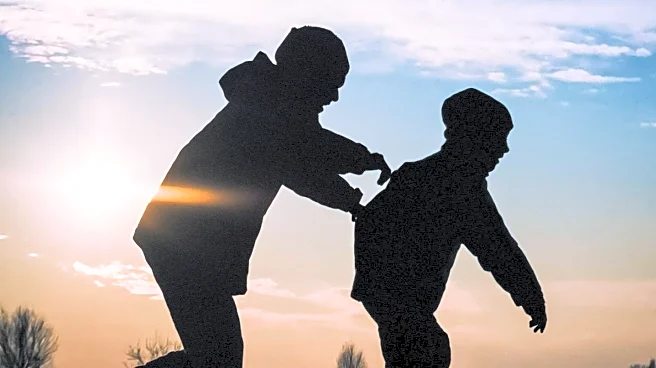What's Happening?
A mother, posting under the username @nicolavarlamos_, has shared her experiences on TikTok regarding the difficulties of maintaining friendships after becoming a parent. She revealed that she stopped updating her friends about her children because they did not inquire about her family life. This decision led to a gradual cessation of friendships with those she knew before having children. Nicola expressed that while she is deeply invested in her family, she refrains from sharing updates with those who do not show interest. Her story has resonated with many, sparking discussions about the nature of friendships and the expectations placed on parents to maintain social connections.
Why It's Important?
The narrative shared by Nicola highlights a common issue faced by many parents: the struggle to balance personal relationships with family responsibilities. This situation underscores the emotional challenges that can arise when friends do not reciprocate interest in a parent's new life phase. It also raises questions about the societal expectations of mothers to maintain friendships while managing the demands of parenthood. The broader significance lies in the potential for increased isolation among parents, which can affect mental health and well-being. This story serves as a reminder of the importance of mutual effort in friendships, especially during significant life changes.
What's Next?
The discussion initiated by Nicola's post may encourage parents and their friends to reassess their relationships and communication patterns. It could lead to a broader conversation about how society supports parents in maintaining social connections. Friends of parents might become more aware of the need to actively engage and inquire about their lives, fostering stronger and more supportive relationships. Additionally, parents might seek out communities or groups where they can share experiences and find support from others in similar situations.
Beyond the Headlines
Nicola's experience sheds light on the cultural expectations surrounding motherhood and friendship. It challenges the notion that parents, particularly mothers, should bear the responsibility of maintaining social ties without reciprocal effort. This story may prompt a reevaluation of how friendships are perceived and valued in the context of parenthood, potentially leading to a shift in how society views and supports parental roles.











